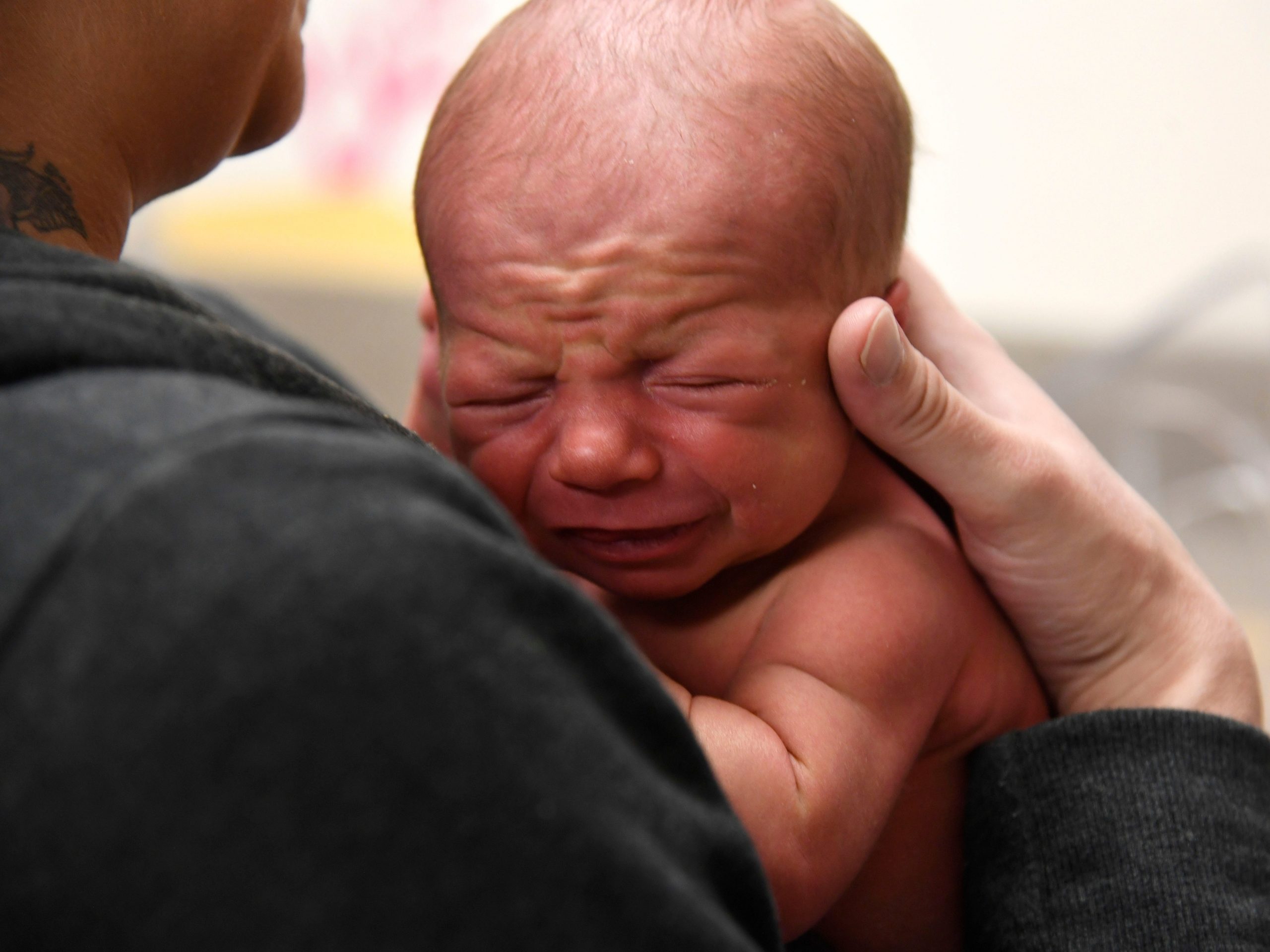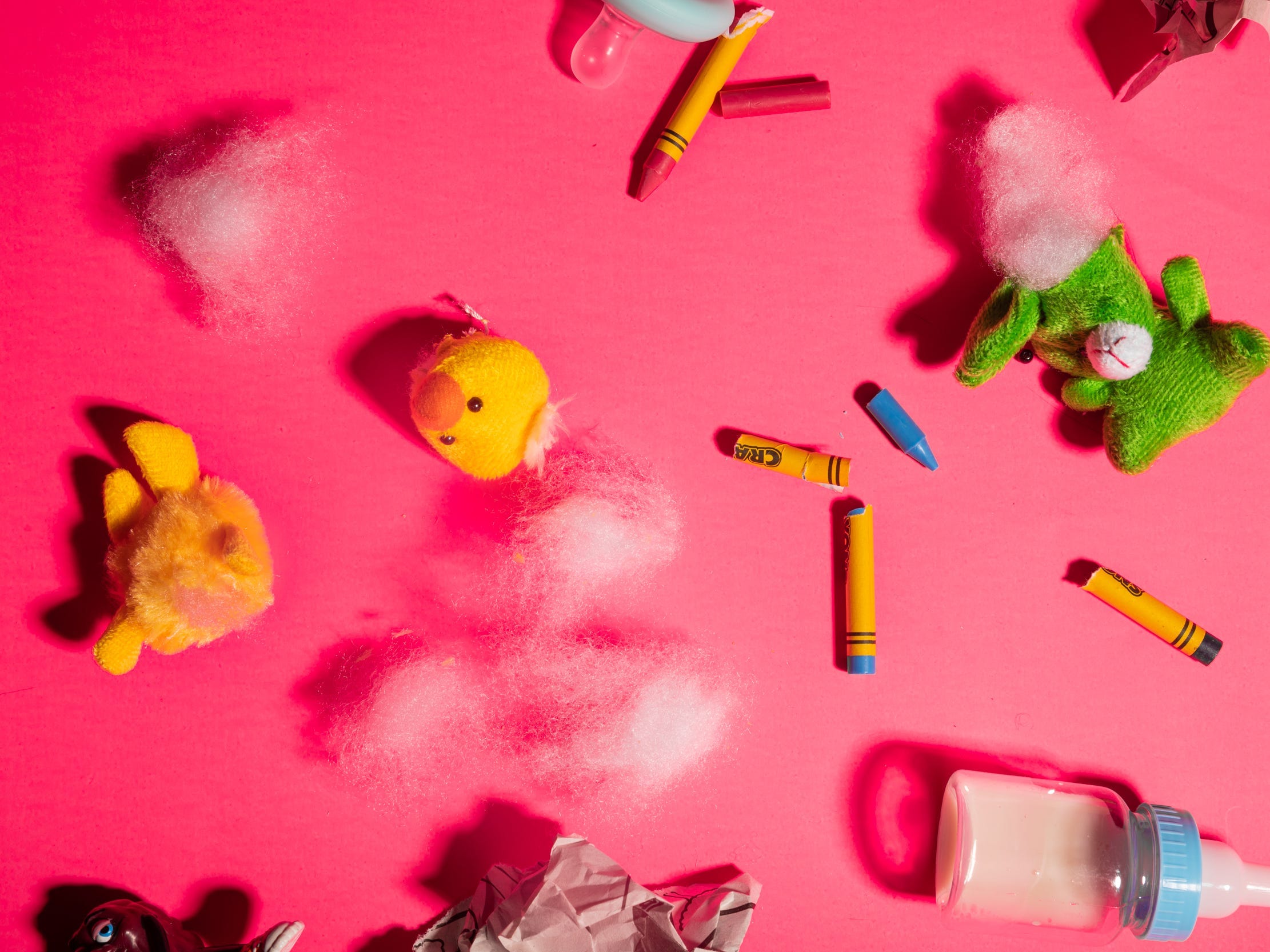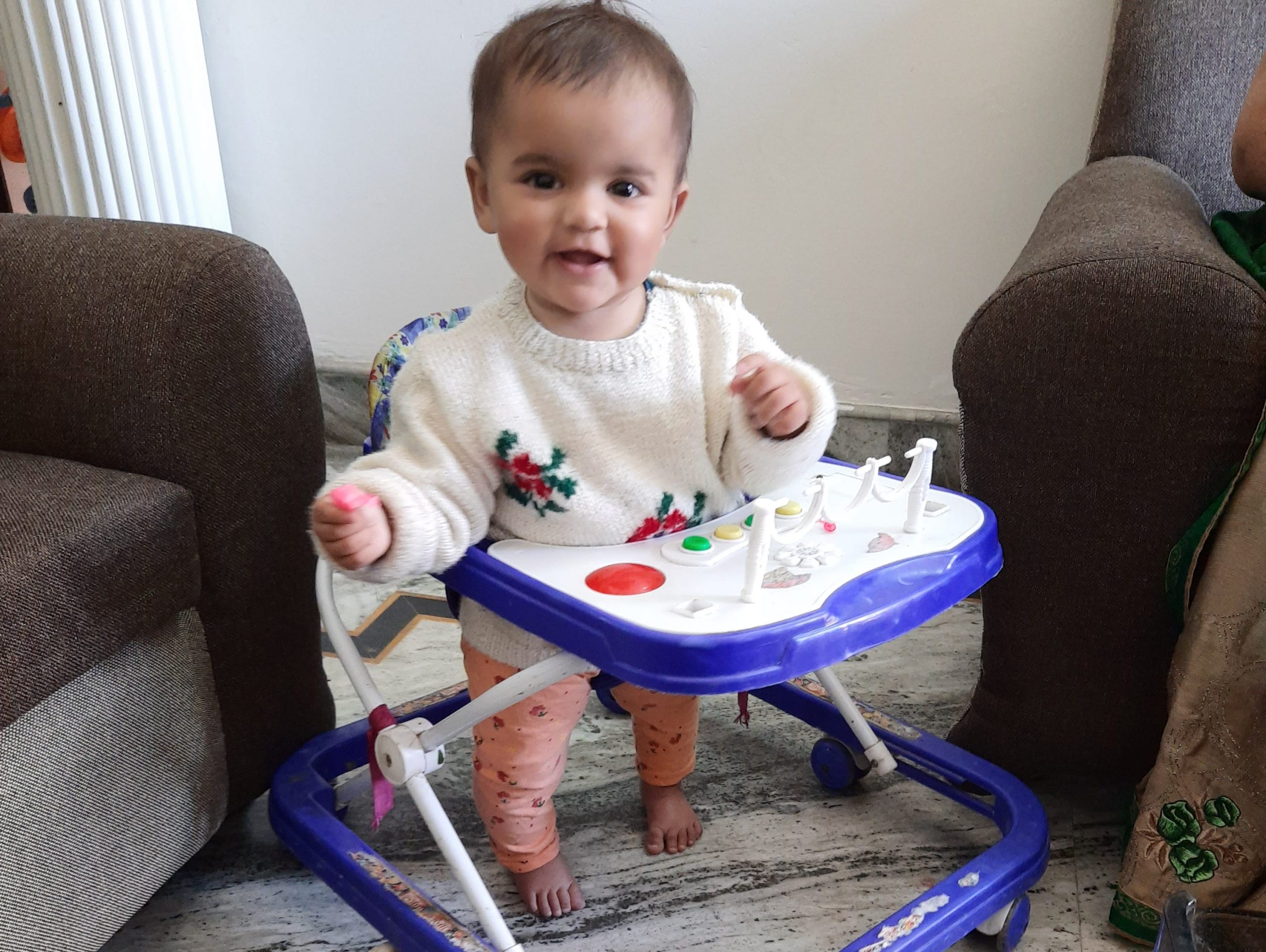
- Even before a baby is born, expectant parents will likely hear a slew of advice from well-meaning friends and family.
- A lot of the advice that is often repeated are actually myths, including that picking up a crying baby could “spoil” them.
- Dr. Blair Hammond, a general pediatrician, and Dr. Aliza Pressman, a developmental psychologist, debunked 16 common baby myths.
- Visit Insider’s homepage for more stories.
Even before a baby is born, parents-to-be can expect an onslaught of advice on how to raise their child to be healthy, smart, and happy. But many of the oft repeated tips haven’t been corroborated or are downright myths.
Dr. Blair Hammond, a general pediatrician, and Dr. Aliza Pressman, a developmental psychologist, who both work at Mount Sinai Hospital in New York City, talked to Insider about — and debunked — 16 myths about babies that parents frequently hear.
Myth: Picking up a crying baby will spoil them
Parents are often warned against holding and coddling their babies for extended periods of time when they cry because that could “spoil” them and lead a baby to rely on being held when they’re upset. Experts say this simply isn’t true.
“Picking up a baby will not spoil them,” Pressman said. “Don’t let anyone tell you otherwise.”
Parents should make an effort to touch and snuggle their wailing newborns as much as possible because it teaches their brains to go from being upset to feeling calm. That’s a life skill, which can begin to develop in infancy, Hammond said. (As a child gets older, it’s certainly possible to spoil them by giving into demands, but that is a “totally different thing,” Hammond added.)
Myth: Babies who walk and talk early are the brightest of their peer group
An early talker may perform better in language skills later in life than babies who don't talk early. However, children who don't speak early may also excel just as much, if not more, Pressman said.
The same is true of motor skills. "It's not necessarily true, or likely true, that an early walker is going to get into Harvard," Pressman said.
On the other hand, motor delays could be linked to medical issues that may arise. If a child is experiencing a delay in walking or other motor milestones, that's something to discuss with a pediatrician, Pressman said.

Myth: Babies should sleep through the night by 3 months
At three months, it's possible for a baby to begin sleeping through the night, but it's not a sure thing.
"We all hope for that," Hammond said. "Every mother wishes that."
If, at three months, your baby isn't sleeping through the night because they need a feeding or two, that's OK, Pressman said. Up until four months, a parent should allow the infant to direct how the nighttime feeding and scheduling goes. Between four and six months, parents can start to try sleep training methods.
Myth: Never wake a sleeping baby
Newborn babies "really need to feed frequently," according to Hammond, which is why it's necessary to wake up a baby in the first few weeks of life every three to four hours, if they don't get up on their own. As children get older, you can allow them to sleep for longer periods of time.
Myth: A baby's length at birth will predict their future height
Parents often look to the baby's length at birth as a determinant as to how tall they'll be later on in life. But Hammond and Pressman say this isn't an accurate indicator.
The biggest predictor of height, they said, are the parents' heights. It also depends on when a child goes through puberty. The older a child begins to go through puberty, they more time they'll have to continue growing.
Myth: Lullabies help babies sleep
Singing to a baby can certainly calm a baby and a parent. But it's not a "magic pill" that is going to make your baby fall asleep, Pressman said. She encourages parents to find a variety of ways to soothe an infant, whether that's with music, touch, or reading.
Myth: Certain toys make babies smarter

After having a baby, parents will inevitably be inundated with targeted ads for "brain-building" toys. But what helps your baby grow smarter isn't the toy, it's how a parent or caregiver interacts with a baby while they're playing with that object.
For example, just putting a baby in front of blocks won't accomplish much in the way of brain development. But talking to a baby while they stack and discussing the various shapes, colors, and textures will.
Myth: Excessive crying means something is wrong
A baby will be most fussy during their first three to six weeks of life. When a newborn cries for a long period of time, the first thing a parent should do is give the baby a once over, and make sure the baby isn't hurt and has fed, peed, and pooped. It's possible that they're so awake and frazzled, they can't calm themselves down, Hammond said.
A baby who cries a lot could have infant colic. That's when a baby cries for at least three hours a day, at least three days a week, for three weeks.
If a baby is able to calm down when held by a parent or caregiver, that's reassuring, and indicates it isn't a pain issue, Hammond said. At any point, a parent should call their pediatrician if the crying feels worrisome.
Myth: Put honey on a pacifier to soothe a teething baby
Serving honey in any form to a baby before their first birthday is dangerous because it can lead to a rare, but serious, condition called infant botulism.
That's why parents shouldn't put honey on a pacifier to help soothe a baby who's teething.
Myth: Baby walkers help babies walk

Some studies show that babies who use walkers end up walking later than babies who don't use walkers, Hammond said. Another issue to consider is that walkers can lead to injuries, since a child could fall down the stairs with it and a baby may be able to climb on it, and reach for a hot stove, knife, or other dangerous item.
The best thing a parent can do is allow a baby to develop that skill naturally, Hammond and Pressman said.
Myth: Naps aren't necessary
Naps are crucial for babies' emotional and physical development. They help babies learn better, control their behavior, and fall asleep better — an overtired baby will have a harder time getting to sleep, Hammond said.
Parents who keep their babies up during the day, to ensure longer sleep at night, will have an "angry" baby on their hands, Hammond said. "That's not going to be a fun baby to take care of," she added.
An infant or toddler shouldn't be awake for more than five consecutive hours, and naps should remain in the schedule at least until a baby is about three years old.
Myth: Teething causes fevers
Teething shouldn't cause any issues outside of the discomfort that comes with the process. A baby might get fussy or eat less, but teething shouldn't cause a runny nose, vomiting, or fever, Hammond said.
Myth: Babies needs water when it's hot
For the first six months of life, a baby should only be given milk and formula to drink, nothing else — not even water. A baby's kidneys are too immature at that point to digest water, which should be introduced at about six months.
Myth: Avoid serving peanuts, fish, and eggs until the toddler years
In the past, doctors advised parents to hold off on introducing foods that babies could potentially be allergic to, including, fish, eggs, and products containing peanuts. Now, under the guidance of a pediatrician, families should introduce these foods between four and six months, because it may actually increase a baby's tolerance to those foods.
Myth: Classical music can make your baby smarter
While playing classical music may certainly stimulate a baby's mind, it won't, in and of itself, help to make a baby smarter. The key is how an adult interacts with the baby while the music is playing, by showing delight and commenting on the sounds, Pressman said.
Myth: Bouncing babies will cause them to be bowlegged
Bouncing a baby, and allowing them to stand assisted on an adult's lap, is "fantastic" for motor development, Hammond said. It helps them to develop muscle strength and control, and doesn't put a baby at risk for becoming bowlegged.
However, a contraption, like a jumper, is not helpful in this case because it puts babies in an improper position, where they're leaning more on their toes, which isn't recommended.
- Read more:
- 24 pregnancy myths that doctors want you to stop believing
- Katy Perry, Kylie Jenner, and 6 other celebrity moms on how their bodies changed during pregnancy
- I'm a pediatrician and I think we should reopen schools, even with the risk of coronavirus outbreaks
